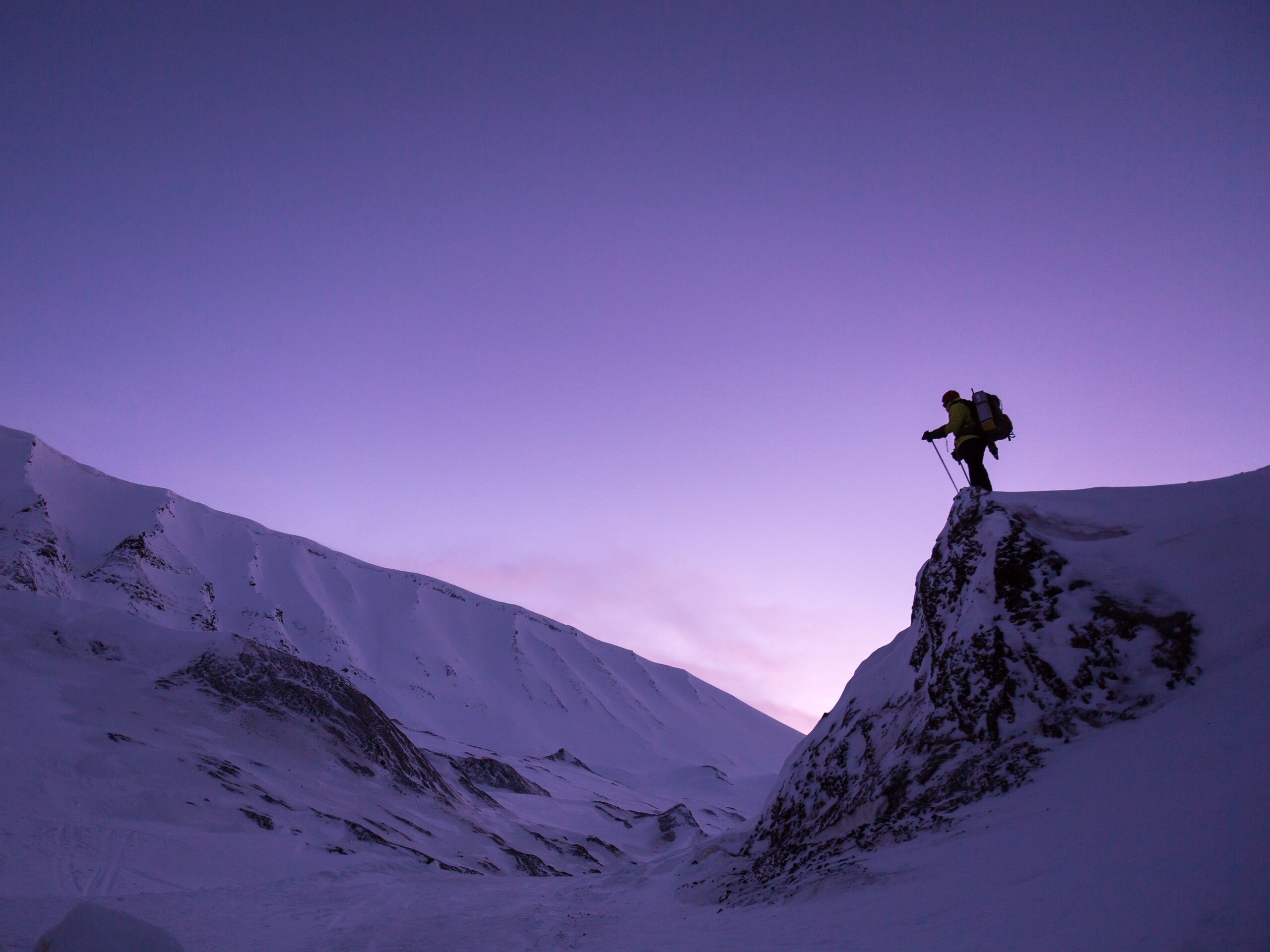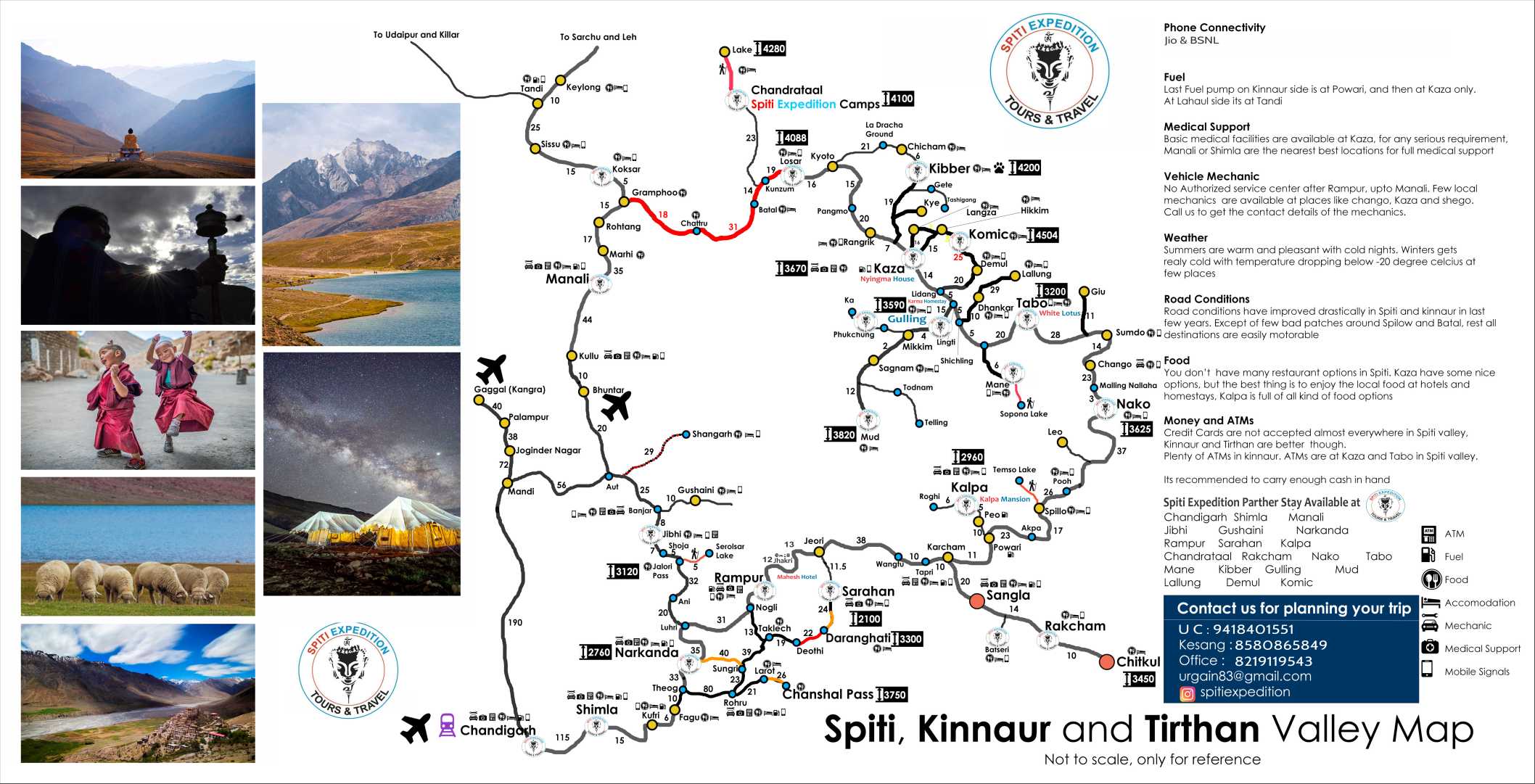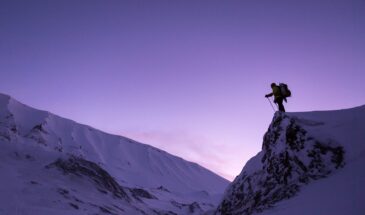- About the Expedition
- Trip Outline
- Trip Includes
- Trip Excludes
- Gallery
Hello Fellow Travelers,
Thank you for choosing Spiti Expedition, at the offset we are extremely excited and totally looking forward to host a memorable trip for you. We love living in outdoors and the adrenaline, we also believe that it is truly the greatest gift of God, the beauty and magic outdoors, hence the need to respect it. We are laying very basic and easy to do guidelines for the same with the motive of leaving minimum footprint, preserving the flora, fauna, biodiversity and ecology of the region along with coming close to local communities and culture of the region. We truly believe that you will help us in initiating this and become an Eco-Traveler, if not already one.
A little on what Ecotourism exactly is-
A dictionary defines it as "tourism directed towards unspoilt natural environments and intended to support conservation efforts". In addition, Eco-Traveler believes in supporting, protection and at the same time experiencing local culture and heritage. Tourism results in social, as well as environmental impacts, and a responsible tourist needs to be aware of this.
Here is how you can help -
Carrying your own water bottle, cups, plates and filling water from natural resource, drinking locally brewed products served in glass or recyclable materials.
Using litter bins to trash items that do not decompose, minimum use of purchases packed in plastic, carry a waste bag for your personal non-biodegradable waste.
Enjoying watching the biodiversity of the geography, not playing loud music or being loud, when we go outdoors, we are borrowing home of animals and birds, it’s our responsibility to ensure they are not disturbed.
Purchasing locally produced items- from handicrafts to breweries to savories
Keeping minimum carbon footprint and nil plastic footprints on the trail through not burning plastic or wood.
Things an Eco-Traveler carries -
Apart from personal clothing and toiletries following items need to be carried in order to make this do it yourself and minimum footprint trek and also for your personal convenience-
Carry your own water bottle, tea up and a tiffin box for packing lunch, instead of using disposable packing material. Water bottle with filters are available, however the natural resources are clean and pristine. It’s good to carry dry fruits and nuts for personal use.
Carry a day bag pack, we will provide potters for those need it, however only essentials can be carried for an overnight trek in a day pack.
A waste bag to collect waste on the way in your day pack.
Travel light and easy to enjoy the true essence of backpacking!
Trip Undertaking
Traveling and Trekking in high altitudes require basic fitness and mental endurance, our team will ensure successful completion and will provide guidance and support, in case of an unforeseen event however, we will handle it to the best of our capacity, and the ultimate responsibility lies with each traveler.
This homestay trek that offers a true, raw and tough experience of a Spitian life through trekking in the Himalayan Plateau, recommended only to those who are looking for a unique yet tough experience. The real charm of Spiti lies in knowing how the indigenous in Spiti live. An authentic and real experience.
This requires physical fitness and endurance as trekking altitude will range between 12000ft to 16000ft.
Route Map
Itineraries
Day 1
Manali
Arrive at Manali in the morning, stay will be arranged in a country side guest house in Old Manali. Spend the day Relaxing and local sight-seeing in Manali.
One can visit Hadimba temple, Vashisht or just take it easy in café’s in Old Manali.
Day 2
Drive from Manali to Kaza
We begin the day starting early since it’s a long drive to Kaza, we would cross Atal Tunnel, Chhatru, Batal, Kunzum Pass and Losar to reach Kaza.
Spend the night in the comforts of an authentic cozy Hotel at Kaza.
Day 3
Drive to Langza/Acclimitisation at Langza
On the third day of our Spiti Valley homestay trek, we will be travelling from Kaza to Langza.
Langza, a region which holds immense appeal to the history-lover. Extremely rich in fossils of marine life and animals, Langza takes you back to a prehistoric era when Spiti was submerged in the Tethys Sea. Pay tributes at the 1000-year old Lang (temple), and wander around the prehistoric archaeological excavations found here.
Spend the night in the comforts of an authentic cozy homestay.
Day 4
Trek from Langza to Komik. Overnight at Komik Homestay (14,800 feet / 3-4 hours)
On the fourth day of the Spiti Valley homestay trek, the real journey begins as we start with a 3-4-hour moderate trek towards Komik – the highest inhabited village in all of Asia.
On the way, stop over at Hikkim and send a postcard from the highest post office in the world. Hikkim also just happens to be the highest polling station in the world as well.
After our little highs, we continue walking higher and ascend 15,000 feet above sea-level to reach Komik. If the season is right, gorge on freshly picked peas from the farms, run behind a Yak or sit endlessly watching the locals herd their cattle. Stroll up to the Komik Monastery, whose claim to fame is the being the highest monastery in the world with a motorable road.
As the night approaches, watch the stars come up so close to you, that you feel like you can almost jump up to catch them. While the mercury outside continues to drop at nightfall, snug into the comforts of a mud home where the temperatures are always comparably warmer.
Enjoy a hot, freshly home cooked local meal and call it a day.
Day 5
Trek from Komik to Demul. Overnight at Demul Homestay (14,435 feet / 4-5 hours)
On the fifth day of the Spiti Valley Homestay trek, we will head from Komik to Demul on foot, traversing the Chemai Lepcha Pass. After walking through barren mountains in shades of browns, the lush greens of Demul are a refreshing change. Even more remote and cut off from the other villages, Demul is delightful during harvest season.
Take a short, traditional Yak safari or learn how to make steaming hot momos with the locals.
Soak in the local flavours and vibe and spend the night in the comforts of the homes of the local residents.
Day 6
Trek from Demul to Lalung. Overnight at Lalung Homestay (12,300 feet / 4-5 hours)
Spiti Valley homestay trek will take you from the secluded Demul to the village of Lalung. It’s an easy day today as you walk down a steep descent till the Lingti Valley.
Literally translating to the “land of God”, Lalung is located at the foot of the Tangmar Mountains. The locals believe their God lives in these mountains and the mountain changes its colors through wide arrays of reds, yellows, browns depending on the mood of their God.
Visit one of the oldest gompas in the Spiti Valley which the natives say was built by angels one night. Bear in mind not to touch the walls of this monastery for people believe that it will make the angels go away.
Delve even deeper into the local faith and legends as you spend a night hearing about more such intriguing stories at your homestay.
Day 7
Trek from Lalung to Dhankar. Return to Kaza(12,800 feet / 4-5 hours)
On this day of the Spiti Valley homestay trek, you will trek across an easy path towards the former capital of the Spiti Valley, Dhankar.
Offering a panoramic view of the valley, Dhankar stands perched above the confluence of the Spiti and Pin river. Legend claims that there must have been a fort here once, but today Dhankar is renowned for its 1200-year old monastery balanced precariously on a rocky precipice. Slowly start acclimatizing back into the “normal” world as you drive away from your last trekking point.
We return to Kaza to rest.
Day 8
Kaza – Manali
The last leg of the journey when we arrive at Manali post a drive of 8 hours from Kaza crossing Batal, Chhatru and Atal Tunnel.
The evening would be at Manali.
- Pick up from Manali and drop at Manali /Kaza-Kaza self travel
- All accommodation from Manali-Manali/Kaza – Kaza in all homestays with all meals
- Guide and porter for the trek and all expenses pertaining to them for the
- All transportation and tourist service charge.
- All bar bills, beverages such as coke, fanta, sprite and mineral water (We do not encourage bottled drinks as it generates plastic)
- Travel insurance
- Personal Equipment’s and rescue operation in case of emergency
- Tips for guide, porters, and driver.
- Any expenses which arise due to a change of the itinerary, because of landslides, political trouble, and strikes etc.
- Laundry, phone calls, internet, heater charge and wifi services.
- Area Permit.



